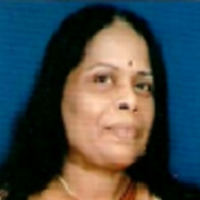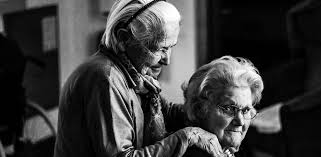By M.Y.Siddiqui
Elderly abuse and ill-treatment have become far more frequent and unidentifiable during the corona virus induced pandemic than ever before notwithstanding the Maintenance and Welfare of Parents and Senior Citizens Act, 2007 and Section 125 of the Criminal Procedure Code, 1973 that provide for all round maintenance and care for elderly. India needs a comprehensive policy and execution of welfare programmes for economic, social and emotional wellbeing of senior citizens. Ageism and other challenges on counts of demographic transition need to be dealt with at the grass roots level in line with other developing nations that have launched participatory action research and community building programmes to address total welfare of the elders, while ensuring inclusion and reducing inter-sectional discrimination. This is because increasing ageism and elderly abuses have thrown a crucial challenge, as elderly comprise a major part of Indian population.
Growing nuclearisation of family and increasing single parenting have resulted in the breakdown of joint family norms leaving elderly uncared for, neglected and traumatised. A United Nations Population Prospects project 20 per cent of India’s population will be 60 years and above by 2050, doubling the current figure. Changing family structure and changes in socialization have been correlated with prevalence of elderly abuses. World Health Organisation (WHO) have defined elderly abuses an act of violence of human rights, physical, sexual, psychological, emotional abuse, financial and material abuse, abandonment, neglect, serious loss of dignity and respect.
A recent Longitudinal Ageing Study in India (LASI) 2017-18 report (the latest available information) highlights that elderly living alone are 8.2 per cent, or with children without spouse 5.4 per cent, experience more abuses. A significant 7.5 per cent are divorced, separated and deserted face some kind of ill treatment or the other. The most common perpetrators of abuses of elderly are children and grand children who form 37.5 per cent, displaying the impact of changes in socialization and evolution of social structure.
Absence or death of spouse also plays a major role in impacting the exposure to neglect. Along with that intersectional discrimination is also a contributor. Besides, experiences of abuses are more common among the lower strata elderly, elderly men 6.7 per cent, elderly women 5.6 per cent and elderly residing in rural areas 5.8 per cent. Ill-treatment may also be a result of ageism and associated stereotypes, reflected by the LASI report showing elderly currently working experience 6 per cent ill-treatment. Elderly with low education are more susceptible to abuse and ill treatment as they are not aware of their legal rights. Economic factors also influence outcome. LASI report shows that the poorest, according to monthly per capita expenditure, experience far more discrimination than the rest. Elderly do also face economic exploitation socially if they are divorced, deserted or living with people other than family.
Bihar and Karnataka top the list with more than 10 per cent elderly abuses, twice the national average. Other Southern states along with the Northeastern states have reported lowest incidents of elderly abuses vis-à-vis the rest of India. Among the victims of ill-treatment, 77 per cent elderly experience verbal or emotional abuse regardless of their living conditions, economic status, marital status, education and so on. Almost 24 per cent have faced physical ill treatment, 27 per cent economic exploitation and 53 per cent some kind of neglect. LASI report reveals, on an average, one out of 20 elderly reported experiencing ill treatment by their family members, nationally. The report also indicates that these figures are highly under reported. Abuse and ill treatment, mostly inflicted by family members with feeling of security severely distorted, force victims not to report the crime. Associations of the family with such accusations further reduce reporting such disturbing cases making the abused suffer in silence.
Pandemic induced lockdown enclosed the elderly victims with the perpetrators, leading to covert abuses. Living with perpetrators of ill treatment may be traumatic; nevertheless, living alone has become even more traumatic considering the needs of the elderly and their susceptibility to the virus. Additionally, there is emerging trend among middle class/upper middle class in urban conglomerates to shift their old parents/grand parents to senior citizens arbours where they feel isolated, lonely and traumatised away from their loved ones resulting in their early deaths. There is dire need to deal with this alarming issue before its consequences become debilitating. Ageism and elderly abuses are not limited to mental health alone. Its impact is severe on mental and physical health on elderly who have had experiences with violence and emotional abuses. A huge burden also falls on the economy of the country on this count. Such prejudicial and discriminatory practices are also associated with premature deaths and overindulgences in unhealthy and risky behaviours, further contributing to the disease burden of the nation.
Demographic transition with ageism and related challenges need to be dealt with at the grass roots level on the pattern of other developing nations where participatory action research and community building programmes address issues at ground level, while ensuring inclusion and reducing inter-sectional discrimination. India needs a comprehensive policy and proper execution of welfare programmes for economic, social and emotional well being of its elderlies before it is too late. After all, the reality of life that normally one has to live five stages of life, birth, growth, decay, disease and death, unless one dies prematurely on account of natural or human made disasters. So the fact of life, ageism is the ultimate. Hence, need for all round welfare of the elderly!
Powered by Froala Editor




LEAVE A REPLY